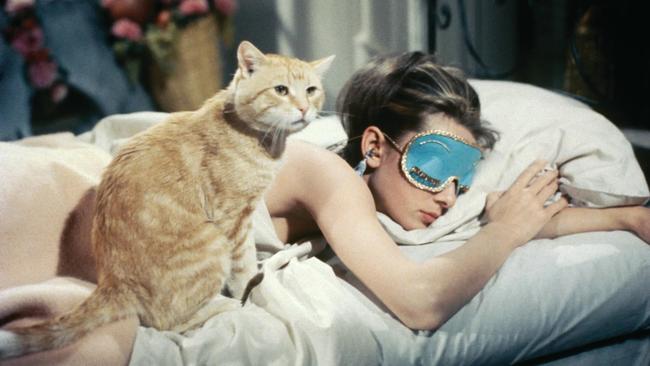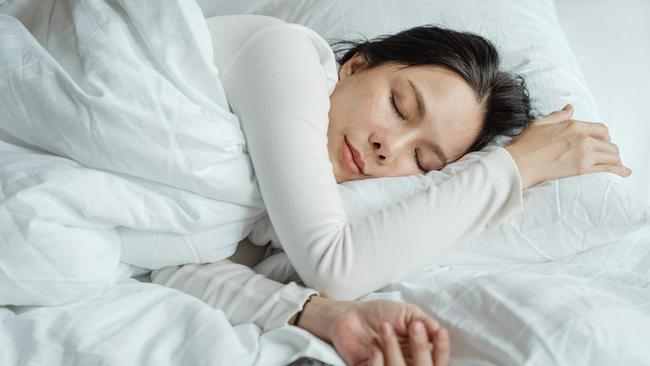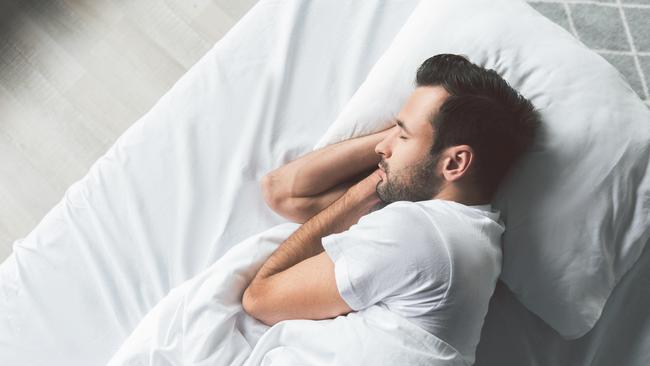Don’t get up — lie-ins are healthy
New research has found lie-ins lower the risk of heart disease, but there’s more to it than that.

As much as many of us feel we need a lie-in at the weekend, it has long been freighted with warnings that this damages our health. Scientists previously warned that consistency is key for our sleeping patterns, with lie-ins leading to metabolic changes such as worse blood sugar control and weight gain. Others suggested that they disrupt our body’s circadian rhythm resulting in “social jet lag” that leaves us groggy and in a low mood the next day. Now, though, we can pull the duvet back over our heads without guilt because a new study has revealed that the weekend lie-in might lower our risk of heart disease.
Researchers at the annual meeting of the European Society of Cardiology (ESC) showed that people who catch up on missed sleep could reduce their risk of the disease by almost one fifth compared with those who march on sleep-deprived.
Using data from more than 90,000 adults in the UK Biobank project, the team from China’s National Centre for Cardiovascular Disease in Beijing looked at the relationship between heart disease and the amount of “compensatory weekend sleep” – a lie-in – recorded using trackers.
They found that those who clocked up the most additional hours in bed at the weekend – between 1.28 and 16 hours a week – over an average 14-year follow-up were 19 per cent less likely to develop heart disease than those who typically got even less sleep at the weekend than during the week.
“Sufficient compensatory sleep is linked to a lower risk of heart disease,” said study co-author Yanjun Song, who is based at Fuwai Hospital in Beijing. “The association becomes even more pronounced among individuals who regularly experience inadequate sleep on weekdays.”
Kevin Morgan, emeritus professor of psychology at Loughborough University’s Clinical Sleep Research Unit, says the new study is the latest to highlight the disadvantages of being a short sleeper who regularly gets six hours or less sleep a night.

“It also tells us that you can compensate for some of that lost sleep with a lie-in. And the big message is that we shouldn’t feel bad about an extra hour or two of sleep at the weekends, but instead capitalise on the benefits it can bring of making us feel better and become healthier.”
It’s welcome news if you crave extra snooze time, although there are rules on how to do it.
If I don’t get enough sleep all week, can I really catch up at the weekend?
“Sleep is plastic and wired up to be more flexible than we are often led to believe,” Morgan says. “You can take a bit off your pre-midnight sleep quota and add it elsewhere just as you can catch up on some missed sleep by lying in at weekends.”
If this wasn’t the case, he says, new parents wouldn’t survive the sleepless nights with a newborn. Not that weekend lie-ins are necessarily enough to pay back a chronic sleep debt incurred during the week. “If you are sleeping too little for five nights and then make up some of it on Saturday and Sunday, it is better than nothing but won’t pay off all of your sleep debt,” says the sleep consultant Dr Neil Stanley. “Eventually, you will hit a sub-optimal equilibrium as sleep deprivation takes its toll so it is important not to neglect your weekday sleep just because you can have a lie-in at the weekend.”
Can I take a nap instead of a lie-in?
Another option for compensatory sleep is to take a nap, with the sweet spot being about 30 minutes. Since deep slow-wave sleep (SWS), the most restorative type, sets in after about 20 minutes a half-hour nap should leave you revived but not groggy when you wake up. Even a ten-minute power nap can be enough to combat short-term drowsiness even though you are mostly in light SWS.
“Short-duration napping can help you get through the day but is not really enough to make up for a lack of good quality sleep at night,” Stanley says. “It will also mean you are less likely to sleep well that night.”
A study presented at the ESC conference in 2020 found that naps of more than an hour were associated with a 34 per cent increased risk of cardiovascular disease compared with not napping.
Only half of the population are natural nappers anyway. “A lot of people, myself included, just can’t nap as they are not wired that way,” Morgan says. “So, a lie-in is the better option for them and is generally more practical for most of us.”
When is a lie-in too long?
In general, Morgan says, having an extra hour or two in bed at the weekend because you need it is fine. “We shouldn’t feel guilty about that,” he says. In the new study some participants claimed to be getting up to 16 hours’ extra catch-up sleep on Saturday and Sunday mornings, which in anyone’s book is too long. “If you need excessive lie-ins of longer than two hours you risk pushing your body into the delayed sleep phase syndrome,” he says. “This affects the internal clock and future sleep patterns.”
If I am well rested is a lie-in still a good idea?
If you are someone who sleeps well during the week, you probably don’t need to lie in. I fall into this bracket, but every two to three weeks I still feel I need to allow my body a bit of a weekend catch-up. “We need to listen to our bodies as they are very good at letting us know when we need a bit more rest,” Morgan says.
What TikTokkers are calling “hurkle-durkling"- apparently referencing an old Scottish term for spending time awake but in bed – or having a pyjama day is another thing and not a substitute for quality sleep. However tempting it is to stay huddled under the covers when the weather turns, it’s best to set a time limit of about 30-60 minutes at weekends before you get up because it will leave you jaded and affect your mood.

Whatever time I go to bed I can’t lie in – what’s wrong?
There’s a strong genetic influence to sleep patterns, and that includes our innate preference for being a morning lark or a night owl. “About 25 per cent of us are definite morning people, 25 per cent are strongly evening people and the rest are somewhere in between,” Stanley says. “If you are a morning person and used to waking up at a certain time, it can confuse the body clock to attempt a lie-in.”
But consistently waking up way too early can result in chronic sleep deprivation, so if early waking persists for more than four weeks and is affecting your wellbeing, you should see your GP to investigate the underlying cause.
Is eight hours a night still considered the gold standard for sleep?
No, says Morgan. “The latest study is yet another to explode the myth that we need exactly eight hours’ sleep a night. If we have to put a number on it, most people need somewhere between seven and nine hours each night, but there are always outliers.” Morgan is one, and says he needs nine and a half hours’ sleep. Getting a lot less than seven hours puts us into the realms of sleep deprivation whereas more than ten is generally too much.
Do we really need less sleep as we get older?
We spend more time in light sleep than deep sleep as we age. Time spent in rapid eye movement sleep drops subtly and time spent in SWS, thought to be important for memory consolidation and emotion regulation, declines by about 2 per cent a decade.
Some studies suggest that we need about ten minutes less nightly sleep with every decade past our forties. “In our twenties we are pretty bulletproof as far as sleep is concerned, but that changes – the important thing is not to stress about precisely how much sleep you are getting as long as it feels enough,” Stanley says. “It’s not a competition, so stop comparing with friends and family.”
The Times





To join the conversation, please log in. Don't have an account? Register
Join the conversation, you are commenting as Logout